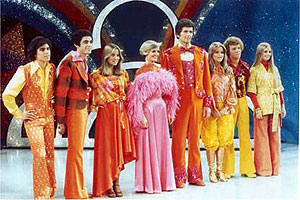Bobby is more likely to be gay than Greg.
 Last blog I talked about some studies that link homosexuality and genes. The most powerful studies are those that compare identical twins to fraternal twins. These studies show that both twins in an identical pair are more likely to be gay than are both twins in a fraternal pair. Since identical twins have the same DNA, this suggests that something genetic is going on.
Last blog I talked about some studies that link homosexuality and genes. The most powerful studies are those that compare identical twins to fraternal twins. These studies show that both twins in an identical pair are more likely to be gay than are both twins in a fraternal pair. Since identical twins have the same DNA, this suggests that something genetic is going on.
But no study showed that if one identical twin was gay, then the other one was always gay as well. We'd expect both twins in an identical twin pair to share a purely genetic trait 100% of the time. Because they don't, the environment definitely plays a role. But not like you might think.
By environment I don't mean certain family situations (although these sorts of factors probably contribute as well). What I am referring to are environmental factors that can affect brain development. Factors like viruses, hormones, or maybe even antibodies.
We know, for example, that the more older brothers a man has, the more likely he is to be gay. Even if he doesn't live with the older brothers.
